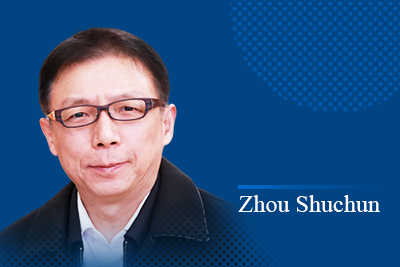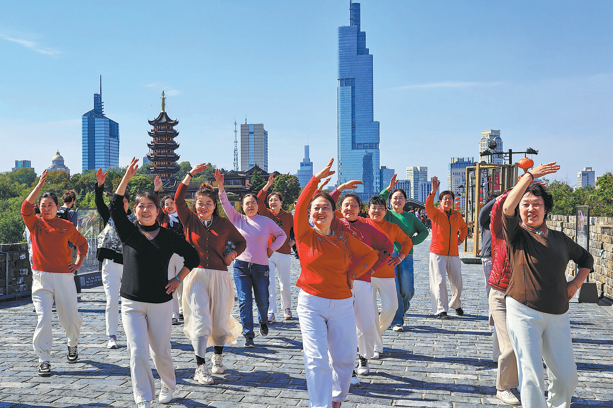Spirit of the Long March guides nation for socialist modernization
Late in 2025, a symphony concert featuring top Chinese musicians was staged in Beijing to commemorate the 60th anniversary of the premiere of The Long March Suite — The Red Army Fears Not the Trials of the Expedition, a classic work of 20th-century Chinese music.
More differences mean you need more exchange programs
Waikiki today looks exactly the same as it did in 1993 when, during my first trip to the United States, I had spent a year completing the Freedom Forum Fellowship for Journalists in Asian Studies at the University of Hawaii in Manoa.
Authorities' scanner to ensure better lunches in schools
Beijing has pledged to provide lunch cooked in in-campus kitchens to all its primary and middle school students before the end of next year.
Strengthening domestic demand central to China's new five-year plan
With China's Central Economic Work Conference now in the rearview mirror, leaders worldwide will watch closely as the country transitions from its 14th Five-Year Plan into the 15th beginning in 2026.
American justice as 'supreme international crime'
On Saturday, the Trump administration forcibly seized the incumbent president of Venezuela. It is its latest violation, a "supreme international crime" as Nuremberg prosecutors would put it.
G20 provides spoiler alert
The G20 Summit in Johannesburg, South Africa, seems to have helped bring almost all parties back onto the right track of solidarity and coordination.
Opportunity to reconnect Europe with China
French President Emmanuel Macron's upcoming visit to China, from Dec 3 to 5, is more than just a diplomatic gesture.
Stocks reflect resilience of Chinese market
Foreign investors are gearing up to return to China's stock markets three years after considering them too risky to trade in and pulling out.
China-US ties, global order should be based on rules
The future of relations between the United States and China in 2025 feels like a sea of uncertainty. One would either need boundless optimism or complete detachment to feel entirely confident about where things are heading. With Donald Trump's return to the presidency, the global order stands at a crossroads, teetering on the brink of significant instability. His campaign was full of sweeping pronouncements on major global issues — trade, technology, climate and industrial policy — but it lacked the coherence of a clear plan. His idea of imposing tariffs on Chinese goods, for example, signals a strong "America First" attitude but leaves much to interpretation.
A century's journey proves China's choice
Today, under the leadership of the CPC, China has regained its position as a global leader.
Brazil and China cement a durable bond for the 21st century
There are many synergies between Brazil and China, particularly related to the New Growth Acceleration Program, specifically in energy and transportation, in which Chinese companies have achieved a high level of expertise.
China a welcome partner for Global South
Exports growth, cheap imports and access to affordable credit are key factors for the development of the Global South. The domestic markets in low — and middle-income countries are generally too small to absorb their full productive potential.
Encouraging youth to achieve their dreams
Editor's note: Over the past years, China's socioeconomic situation has undergone significant transformation. Faced with challenges and opportunities, the Chinese government has been making concerted efforts to promote social development and high-quality growth. Three experts share their views on the issue with China Daily.
Damage control
As countries around the world accelerate their strategic technological deployments, traditional global geopolitics are shifting toward "techno-politics". That is, with the unprecedented rise in the role of technology and under the logic of international political competition, the organizational structures and behavioral patterns of nations, as well as the means and content of major power competition, are undergoing significant changes. Technological factors have become core variables in economic competition, national security and even ideological confrontation.
Central Asia, China eyeing a better future
The second China-Central Asia Summit, which concluded in Astana on June 17-during the pomegranate blossom season — was especially important because the Kazakhstan capital is where President Xi Jinping proposed the Silk Road Economic Belt, which together with the 21st Century Maritime Silk Road makes up the Belt and Road Initiative, in 2013.
G20 should help address common global challenges
The existing global economic governance system is faltering against the growing tide of trade protectionism and unilateralism.
Bandung continues to show the way
This year marks the 70th anniversary of the Bandung Conference, the first international meeting of leaders from Asian and African nations.































